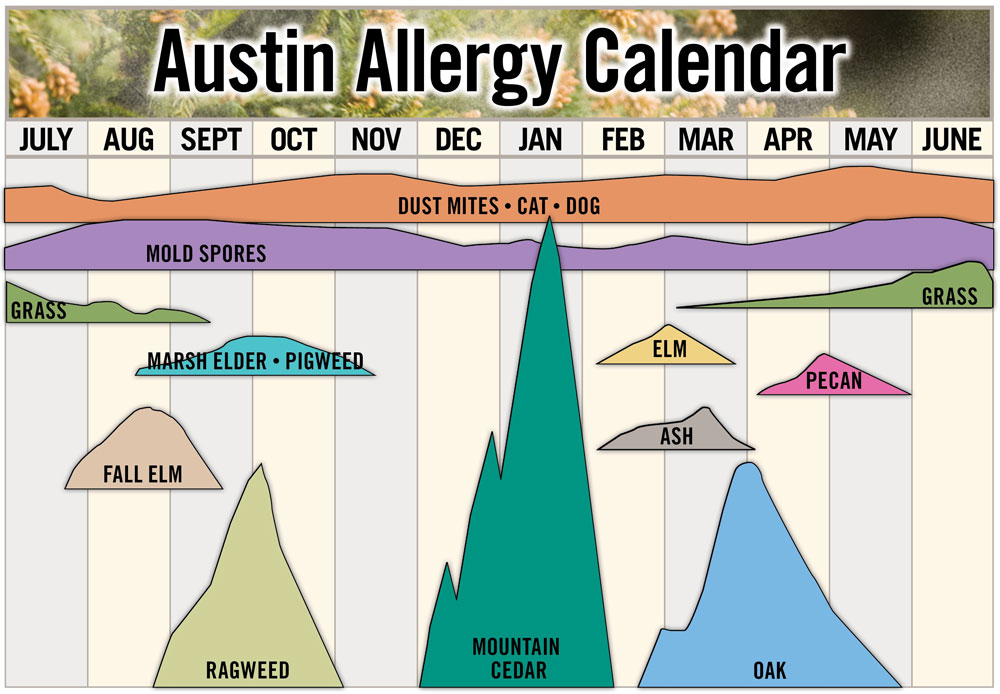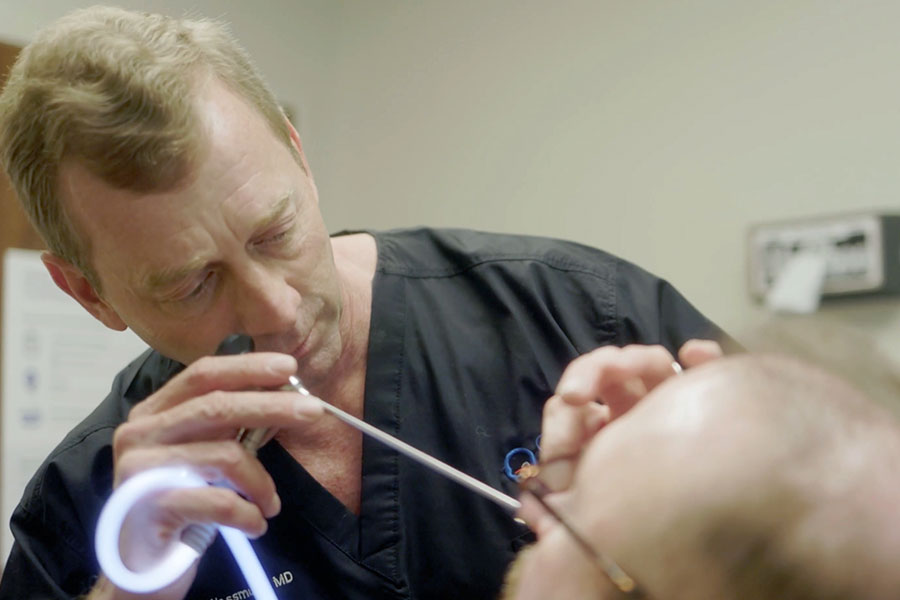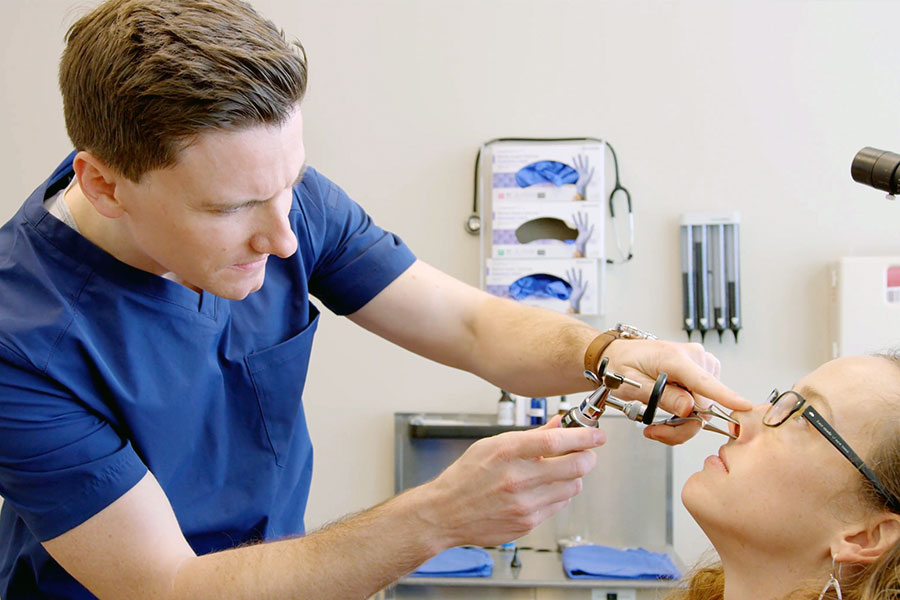Need Allergy Relief?
Treating Allergies
The key in treating allergies is to minimize your exposure by:
- Keeping doors and windows in the car and house closed
- Using a high-efficiency particulate air (HEPA) filter in your air conditioner unit
- Change your clothes and showering after spending long periods of time outdoors
- Rinse your nose with over-the-counter nasal saline
Medical Management
Over-the-counter allergy medications have can be highly effective in treating allergies. These include nasal sprays (Flonase and Nasocort) and allergy pills (Claritin, Allegra, Zyrtec, and Xyzal). Oftentimes, however, medicines alone do not provide enough relief. If this turns out to be the case, we offer patients an allergy test to determine what specific substances in the environment are the culprits behind their symptoms.
Immunotherapy
If allergy medications can’t control your symptoms, we offer our patients immunotherapy. Immunotherapy can be thought of as getting vaccinated against allergies. This type of treatment takes advantage of your immune system by encouraging it to produce “blocking” antibodies to the substances that are causing your allergies. We offer our patients two types of allergy therapy:
- Allergy shots (also known as subcutaneous immunotherapy): These are relatively painless shots that are administered in our office.
- Allergy drops (also known as sublingual immunotherapy): These are drops placed under the tongue at home.
Immunotherapy is 90% effective in curing allergies.
Surgical Management
78 percent of those who suffer from allergies say that nasal congestion is the most bothersome symptom. Difficulty breathing through the nose is frequently due to an underlying, anatomical abnormality which can be divided into two categories — static and dynamic. The most common causes of a static obstruction are a deviated nasal septum and turbinate hypertrophy. Treatment involves simple, minimally invasive procedures called septoplasty and turbinate reduction. Occasionally, an additional procedure may be recommended to strengthen the sidewall of the nose to prevent collapse. Pain following these procedures is minimal and patients are typically able to return to normal daily activities within five days.

Or Fill Out The Form Below
Personal Care with Maximum Comfort
We are here to serve you and want you to know that our standard of patient care is the same standard we would apply to our own families. Our specialists are committed to providing you with timely and complete personalized care integrated with maximum comfort, convenience, and privacy.


